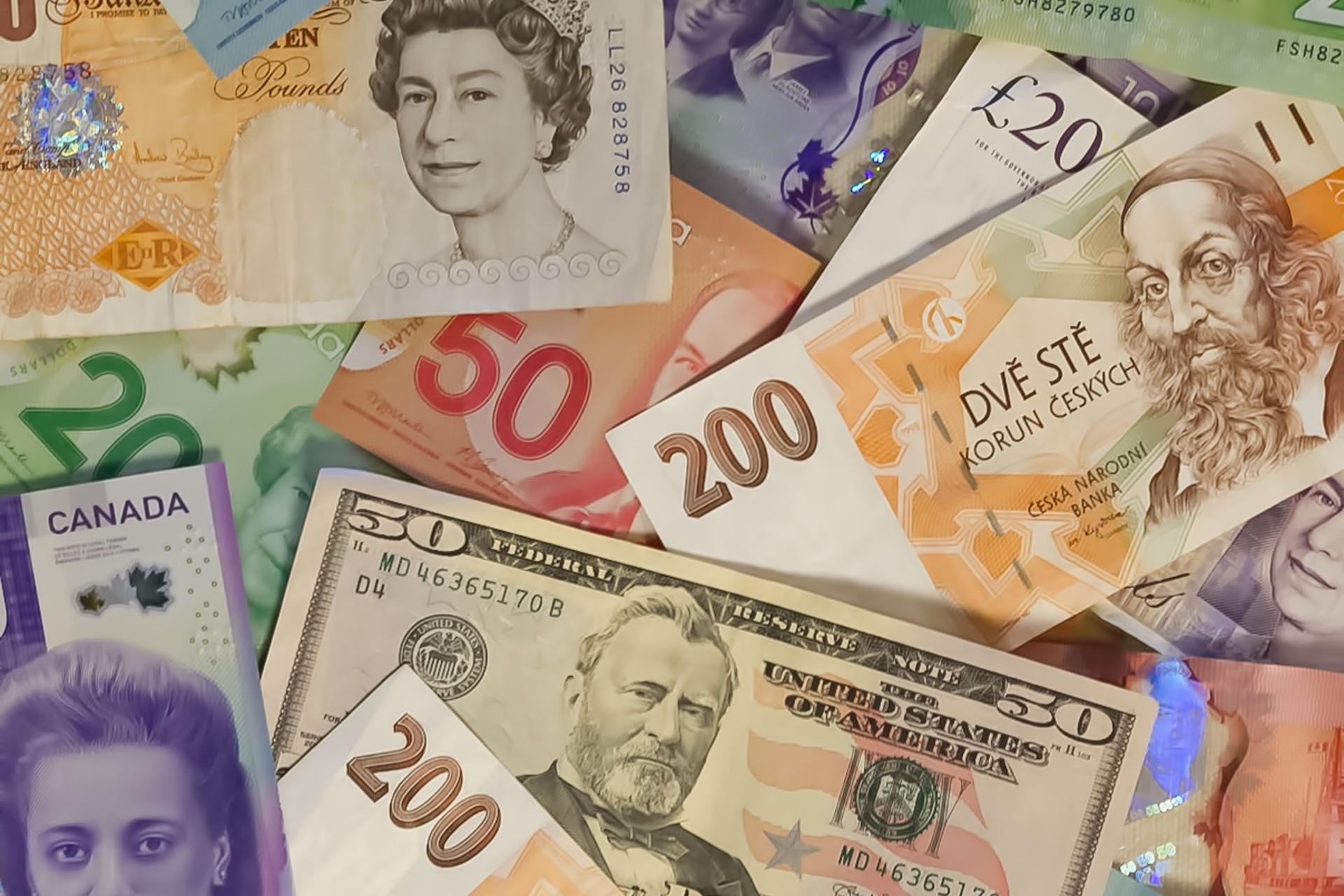People often complain about rising prices and we totally understand them.
Even if the price of every product goes up by 5c, we will spend an extra $1 each time we go shopping. Given that salaries usually don't rise as quickly as consumer prices, we may soon be unable to afford certain goods and services we used to pay for in the past.
So, rising prices or inflation have a real impact on our lives and ways to spend money, and we have to admit that it is negative most of the time.
But what can we do about inflation?
The truth is that inflation does not depend on us and we cannot do anything to prevent it. Inflation always has been and always will be there.
What, however, we can do for our part is try and understand inflation because as the saying has it, "forewarned is forearmed".
Inflation can, of course, be a confusing subject but that is not something you have to worry about. Understanding inflation does not require a master's degree in economics and the main reason why most people find it difficult is that they aren't given a clear explanation.
We at Superprof are aware of that, so we've brought together the most relevant information on rising prices and today, we are going to share it with you.

What do we mean by inflation?
Inflation is an economic phenomenon that concerns everyone because all people have a limited quantity of money that they spend on goods and services.
Nevertheless, many don't even try to understand inflation in detail because it sounds like a difficult term. Why try to learn something if you are not going to get it anyway?
That vision is wrong for the simple reason that inflation is actually not a complex economic term even if it may sound like one. For example, that can be easily seen from the very definition of the word inflation that you can understand without any economic background at all.

In fact, inflation is simply an increase in the price level of goods and services over a period of time. So, basically, if you go shopping and the prices of numerous goods, like food, have become higher, you can safely say that there is inflation and the cost of living is rising.
It is, however, important to keep in mind that inflation is a general rise in prices and not just a change in them.
For example, the price of a particular product can increase because of a supply problem or a higher demand, which is often related to a specific set of circumstances.
When, on the other hand, the prices of many goods and services increase, it generally means that money itself has lost part of its value.
To distinguish inflation from an occasional change in one price, economists have come up with a special index called CPI (consumer price index).
The CPI is based on a whole basket of goods and services regularly purchased by households and is calculated every quarter by the Australian Bureau of Statistics, using data from a great number of shops and markets.
That makes the CPI representative of the general level of prices for food and other important products in Australia and it is often used to measure the current inflation rate.
When was inflation first discovered?
People have been using money to buy goods and services for thousands of years, so a logical question is whether inflation has always been there.
Surprisingly, the answer is no, or at least it hasn't always been as important as it is now.
One of the main differences between the past and now is that there used to be no central banks able to print as much currency as they want, so there was always a stable amount of money in circulation.
As a result, there may have been periods of inflation when goods and services became rare or there was an increase in demand. On the other hand, there could also be deflation (the opposite of inflation) when money became stronger and so goods and services, cheaper.
Since the main currency of the time was gold, strong inflation was in theory possible only if huge quantities of the precious metal flowed into the economy. That is actually what happened in Spain in the 16th century.
After Christopher Columbus first arrived in the Americas in 1492, Spanish ships started to bring huge quantities of gold back to Europe and its supply in the economy quickly rose.
As the amount of goods and services available on the market did not change, money naturally became less valuable and the CPI increases at a crazy rate. Eventually, it was a huge blow to the Spanish economy and it would need centuries to pick itself up from it.
So, from the 16th century on, people have known about inflation. What lessons have they learned?


Controlling the inflation rate
After the rapid rise of the CPI in the 16th century, people realised that inflation can have a crippling effect on an economy and looked for ways to deal with it.
The approach that is currently adopted by most central banks is to maintain the inflation rate at a low level through monetary policies so that its consequences don't become too severe for ordinary people who need to buy food and other products.
The main monetary tool that banks have for that is interest rates. Interest rates are directly related to the change in the CPI because they determine how easy it is for businesses and customers to get money.
When the interest rates are low, people can take loans in the local currency cheaply. The overall money supply in the economy will rise and there will be an increase in the inflation rate.
If, on the other hand, the policy interest rate is high, people become less willing to get into debt, so the CPI goes up slower.
Central banks usually adjust policy interest rates to the current level of prices and inflation and for that, they need exact data. In Australia, the central bank gets that data every quarter from the Bureau of Statistics.
Thus, the work of the ABS is crucial for having a stable economy in Australia, which fully offsets the cost of collecting real price data in the first place.
As for ordinary people, the data about interest rates and inflation can be useful for planning their spending. If they see that interest rates are low, it means that the supply of currency and inflation rate is likely to rise, so that quarter may not be a good moment for saving and you may consider buying some products or investing.
High-interest rates, on the hand, make saving a more acceptable option. If you want to know more about budgeting strategies with respect to inflation, we recommend that you have a look at our article on the topic.
Why not have a zero inflation rate?
So far, we have seen that central banks can control the money supply in economies and so the inflation rate. That raises the question why not get rid of inflation altogether?
Indeed, if there were no changes in the CPI, life would become much easier for households who would be able to always buy the same goods for the same real price.
Unfortunately, things are not so simple and zero inflation rates are usually considered risky by economists and monetary policy specialists.
On the one hand, a zero inflation rate is only possible at the cost of high-interest rates, which has a negative impact on annual economic growth since loans become more expensive and companies have more difficulty finding funds for their projects.
On the other hand, zero inflation can potentially turn into deflation. Deflation is basically negative inflation, which at first sight may sound like a cool thing.
However, economics consider deflation very bad as it deters consumers from spending their money as they hope it will cost more in the next quarter and the economy slows down even further.
In the end, low inflation and affordable interest rates are considered a better option by economies. It keeps customer demand for products high enough for the economy to grow quarter after quarter without the risk of stagnation.
Learn how the inflation rate is calculated from our article.

Why does inflation get out of control?
As we have said the central bank of Australia tries to control inflation through its monetary policy by adjusting its interest rate every quarter and carrying out annual assessments.
So, how is it possible that real consumer prices in Australia can still go crazy at times?
The main reason for that is that the money supply is just one factor of inflation and there are others that the central bank cannot control.
For example, a steep annual rise in the CPI can be caused by the price of certain products, such as raw materials and fuel.
Since timber and fuel are used at some point in the production process by most companies, their higher price can have an influence on general costs and the annual CPI will eventually shoot up.
Another possible cause for inflation that the central bank cannot control is demand. If, for example, demand for some basic commodity, like food, becomes unusually high, it can have a ripple effect across the market and lead to a general rise in the consumer price level in the quarter.
So, the best way not to be caught off guard by inflation is to always stay vigilant and adapt your budgeting to the current situation. You can find out more about it on Superprof.
Summarise with AI:















